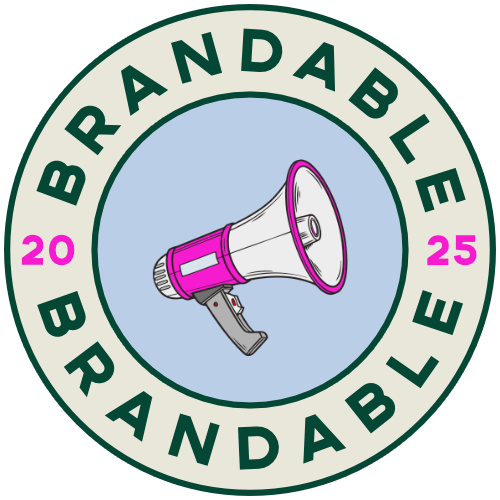What Makes a Name Memorable?
Psychology Meets Brand Strategy
A name that gets noticed is nice.
But a name that gets remembered — that’s what builds brands.
In a world flooded with products, platforms, and pitches, memorability is what cuts through. If your name sticks in someone’s brain after the first encounter — you've already won half the battle.
The best brand names don’t just land once.
Let’s explore the psychology behind memorable names — and how we use that science at Brandable to make names unforgettable.
1. The Brain Loves Patterns
Humans are wired to recognize and retain patterns — especially when something is:
Rhythmic
Alliterative
Balanced or symmetrical
Examples:
Coca-Cola
TikTok
BlackBerry
Why it works: These names tap into the brain’s natural rhythm sensors. They’re fun to say and easy to recall.
2. Distinctiveness Drives Recall
When your name sounds like everyone else’s, the brain files it away in a sea of noise. But distinct names stand out as pattern-breakers.
Examples:
Slack (not “WorkChat”)
Google (not “WebSearchPro”)
Why it works: Unique-sounding names create mental friction — and friction, when done right, creates memory.
3. Simplicity Wins
The brain resists complexity. A name that’s too long, hard to spell, or overloaded with syllables creates cognitive strain, which lowers recall.
Examples:
Zoom
Nike
Monzo
Why it works: Short, clean names leave more mental whitespace for association and emotion.
4. Emotional Anchors Create Stickiness
A name that taps into emotion, aspiration, or story forms a deeper memory imprint.
Examples:
Kind (snack bars)
Patagonia (adventure, earth)
Everlane (simplicity, transparency)
Why it works: When people feel something, they remember it — and are more likely to share it._
5. Sound Symbolism (Phonetics Matter)
Certain sounds evoke certain feelings — even before we attach meaning to them. This is known as sound symbolism.
Sharp consonants (like K, T, X) feel bold and fast
Soft vowels (like O, A, E) feel warm and friendly
Examples:
Kodak (strong, bold)
Lululemon (light, flowing)
Why it works: The sound of your name shapes how people perceive your brand — before they even know what it is.
6. Repetition Reinforces Retention
Ever heard a name and then saw it again a day later? That’s the Mere Exposure Effect — the more we encounter something, the more we remember (and trust) it.
But repetition starts with recognizability. If your name is sticky on first exposure, it performs better on every subsequent one._
How Brandable Designs for Memorability
At Brandable, we use a blend of:
Linguistics
Phonetic testing
Story-based framing
And emotional resonance
To ensure your name isn’t just seen — it’s remembered, repeated, and relayed.
Because in branding, forgettable is expensive.
